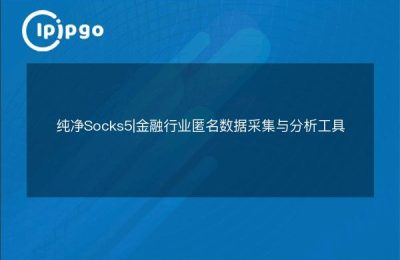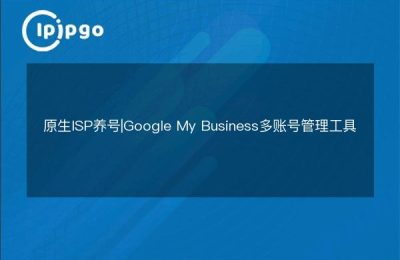
Why do I need a proxy IP for the stock data interface?
Many financial practitioners have encountered such a problem: in the call Nasdaq, the Hong Kong Stock Exchange and other exchanges of real-time market interface, the system suddenly prompted the"Excessive frequency of visits"maybe"Restricted IP address"This is because the exchange will strictly limit the frequency of requests from the same IP in order to ensure system stability. This is because exchanges will strictly limit the frequency of requests to the same IP in order to ensure system stability. With the proxy IP service provided by ipipgo, data requests can be decentralized to different residential IP addresses, which not only meets the demand for high-frequency data acquisition, but also avoids triggering the exchange's risk control mechanism.
Core solution to break through IP limitations
The key to achieving stable access to stock ticker data is toCreate a real IP access environment. ipipgo's residential proxy IP pool covers more than 240 regions around the world, with more than 90 million real home network IP addresses. When a user accesses through ipipgo, each request is randomly assigned a residential IP from a different region, and the exchange server determines that these requests come from real individual user devices, thus effectively circumventing the bulk access feature.
| take | Traditional Program Pain Points | ipipgo solutions |
|---|---|---|
| High-frequency access to time-sharing data | Single IP Trigger Frequency Limit | Automatic rotation of dynamic IP pools |
| Multi-account data collection | IP association leads to account blocking | Independent IP binding exclusive account |
| Cross-border data synchronization | Network latency affects timeliness | Localized IP Node Direct Connect |
Three Steps to Build a Stock Data Brokerage System
Step 1: Select the protocol type
According to the characteristics of the exchange interface, http(s) protocol is suitable for the web version of the data capture, socks5 protocol is more suitable for real-time quotes need to maintain a long connection to the interface. ipipgo supports all protocols to access, according to the specific scenarios can be freely switched.
Step 2: Set up IP rotation policy
For minute-by-minute data collection, it is recommended to setChange IP per requestFor scenarios where session continuity needs to be maintained (e.g., websocket real-time quotes), a static residential IP can be selected to maintain a fixed connection for 3-6 hours.
Step 3: Node Optimization Testing
Through the ipipgo control panel'sDelay monitoring function, filtering the node with the fastest response time. Tests have found that the average latency can be controlled within 120ms when using a U.S. West Coast residential IP to access the Nasdaq interface.
Frequently Asked Questions
Q: Will using a proxy IP reduce the speed of data acquisition?
A: Instead, efficiency will be enhanced in a reasonable configuration. ipipgo offersIntelligent Routing TechnologyThe test data shows that the time consumption of the request relayed through the proxy node only increases by 8-15ms.
Q: How to ensure the stability of IP?
A: All of ipipgo's residential IPs have been approved by theHome Broadband CertificationEach IP is accompanied by real ISP registration information. Together with the session hold function, it can ensure the stability of the connection during the critical time.
Q: How to deal with IP blocking quickly?
A: Enable in ipipgo's administration backgroundAutomatic blacklist exclusionfunction, the system will monitor the request status in real time, and switch to a new IP as soon as an abnormality is found, and at the same time move the blocked IP out of the available resource pool.
Special Notes
When using a proxy IP to obtain financial data, it is important to note thatCompliance with the Exchange's data use agreements. It is recommended to set a reasonable request interval (e.g. 3-5 times per second) in the code to avoid excessive pressure on the exchange server. It is also recommended to turn on ipipgo'sRequest Failure Retry MechanismIn case of temporary network fluctuations, the system will automatically re-initiate the request via a new IP to guarantee data integrity.








